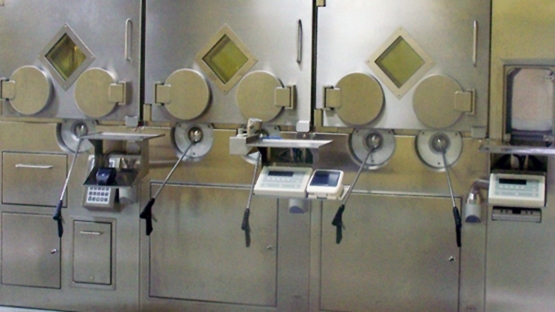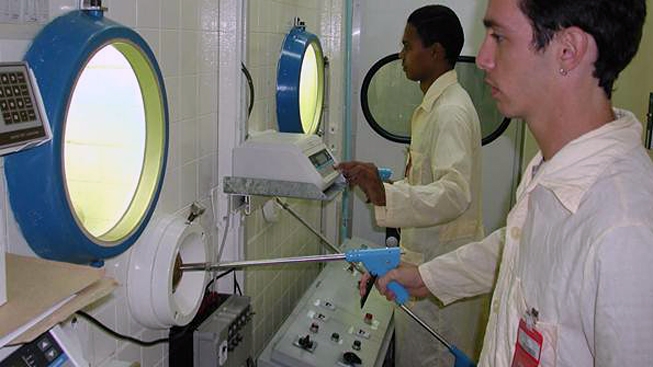Cancer and cardiovascular disease are health conditions Cuba will now be able to more readily diagnose and treat thanks to its newly built facility for producing key radiopharmaceuticals. Nuclear medicine requires a constant and reliable supply of these radioactive drugs, prepared according to what the industry calls good manufacturing practices (GMP), and there have so far been limitations in getting them to the island nation.
"Through our work with the IAEA, we now have a dedicated GMP compliant facility and the expertise to meet most of our national needs for diagnostic and therapeutic radiopharmaceuticals for helping patients," said René Leyva Montaña, Director of Production at the Isotope Centre (CENTIS), Cuba's centre dedicated to radiopharmaceutical production.
GMP follow a series of international quality-assurance standards designed to protect patients from bad quality products. The standards outline the requirements to ensure that the pharmaceuticals produced are of a high quality, safe and effective, and that they contain the correct potency. "Becoming GMP compliant is a demanding, but important process, as a facility must be designed to ensure quality since the products have to be prepared already ready for patient use," said Joao Osso, Head of the Radioisotope Products and Radiation Technology Section at the IAEA.
Cuba's new facility will produce generator-based radiopharmaceuticals (see Radiopharmaceuticals) with yttrium-90 (Y-90), a key component in nuclear medicine to treat liver cancer and other conditions. Y-90 is produced from its parent isotope, strontium-90 (Sr-90). Sr-90 is a radioisotope, which means it is a radioactive element that decays towards stability. As it slowly decays, it releases Y-90, another radioisotope that has a much shorter decay time. Using special devices called generators, Y-90 can be 'milked' from the Sr-90 inside the generator. The Y-90 is then quickly purified and tagged to specific molecules to be used in nuclear medicine.
"Being able to produce the Y-90 generators in the country is much more economical and feasible than buying completed products abroad, as Y-90 has a short decay time, which makes it very difficult and costly to transport," said Osso, adding that Cuba will still need to buy raw materials, like the Sr-90, from suppliers abroad.
The IAEA has supported Cuba in developing the GMP compliant facility by providing the technical assistance and training needed for the development and production of Y-90, including labelling, quality control, metrology, safety and security, Osso said. Cuba has also received IAEA assistance and funding to buy analytical, radiological protection and metrology equipment and the materials required.
At this stage, CENTIS is preparing different formulations of Y-90 for diagnostic and therapeutic radiopharmaceuticals that can soon go to clinical trials and later to patients, explained Leyva Montaña. The facility is now waiting for the final licensing approval before it is ready for full-scale production, Leyva Montaña added.
Tackling an international supply problem
In contrast to Y-90 and Sr-90, which are widely available, technetium-99m (Tc-99m), another radioisotope of importance to Cuba and much of the world, is facing international supply problems due to production issues with its parent radioisotope, molybdenum-99 (Mo-99).
First, it was Cuba requesting the support with fellowships and expert training, but now we are providing training to fellows in radiopharmaceuticals and generator production.






